On November 19, the Greater Bay Area University Presidents Forum, one of the parallel forums of the X-Lake Forum and hosted by the Southern University of Science and Technology (SUSTech), was held at the University’s Convention Center.
Focusing on the theme of “Innovation and Development of Higher Education and Integration of the Greater Bay Area”, presidents from universities in the Guangdong-Hong Kong-Macao Greater Bay Area (GBA) and across the country held in-depth talks about new ways to combine the growth of education, science and technology, and talent to speed up the building of a world-class university with Chinese features and create an effective higher education system in the region.
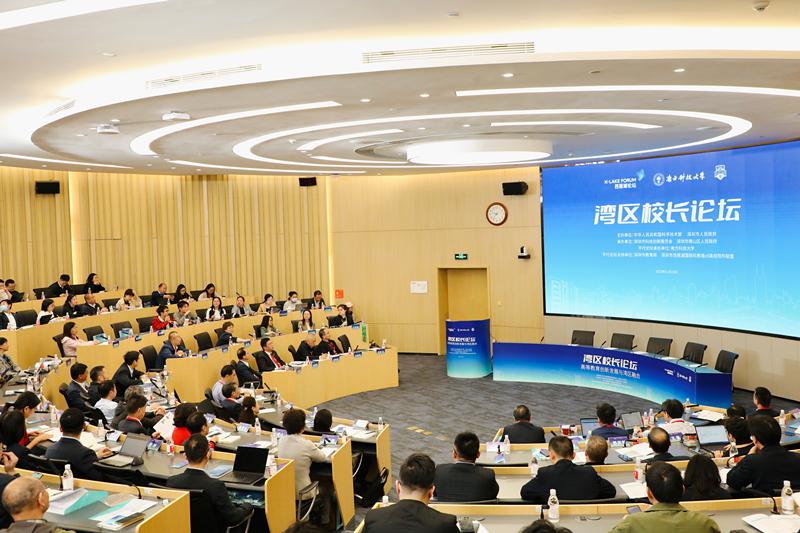
Leaders and guests in attendance included Xiuyu ZHENG, Director of the Education Bureau of Shenzhen Municipality; Lin ZHANG, Director of the Science, Technology and Innovation Commission of Shenzhen Municipality; Wei LI, Member of the Standing Committee of the Nanshan District Committee and Director of the General Office of the Nanshan District Committee; Hong JIANG, University Council Chairperson of SUSTech; Qikun XUE, President of SUSTech; Jin-Guang TENG, President of The Hong Kong Polytechnic University (PolyU); Zuo-Jun Max SHEN, Vice-President and Pro-Vice-Chancellor (Research) of The University of Hong Kong (HKU); Zheng OUYANG, Dean of Tsinghua Shenzhen International Graduate School; Yudong HUANG, President of Harbin Institute of Technology, Shenzhen; Zhifeng HAO, President of Shantou University; Hezhang LI, Rector of the Shenzhen MSU-BIT University (SMBU); Zhongzhi TAI, Vice President of Sun Yat-sen University; Jianling XU, President of Shenzhen Polytechnic; and Yili JIN, President of the Shenzhen Education Society.
Hongwei FANG, Vice President and Provost of SUSTech, chaired the forum.
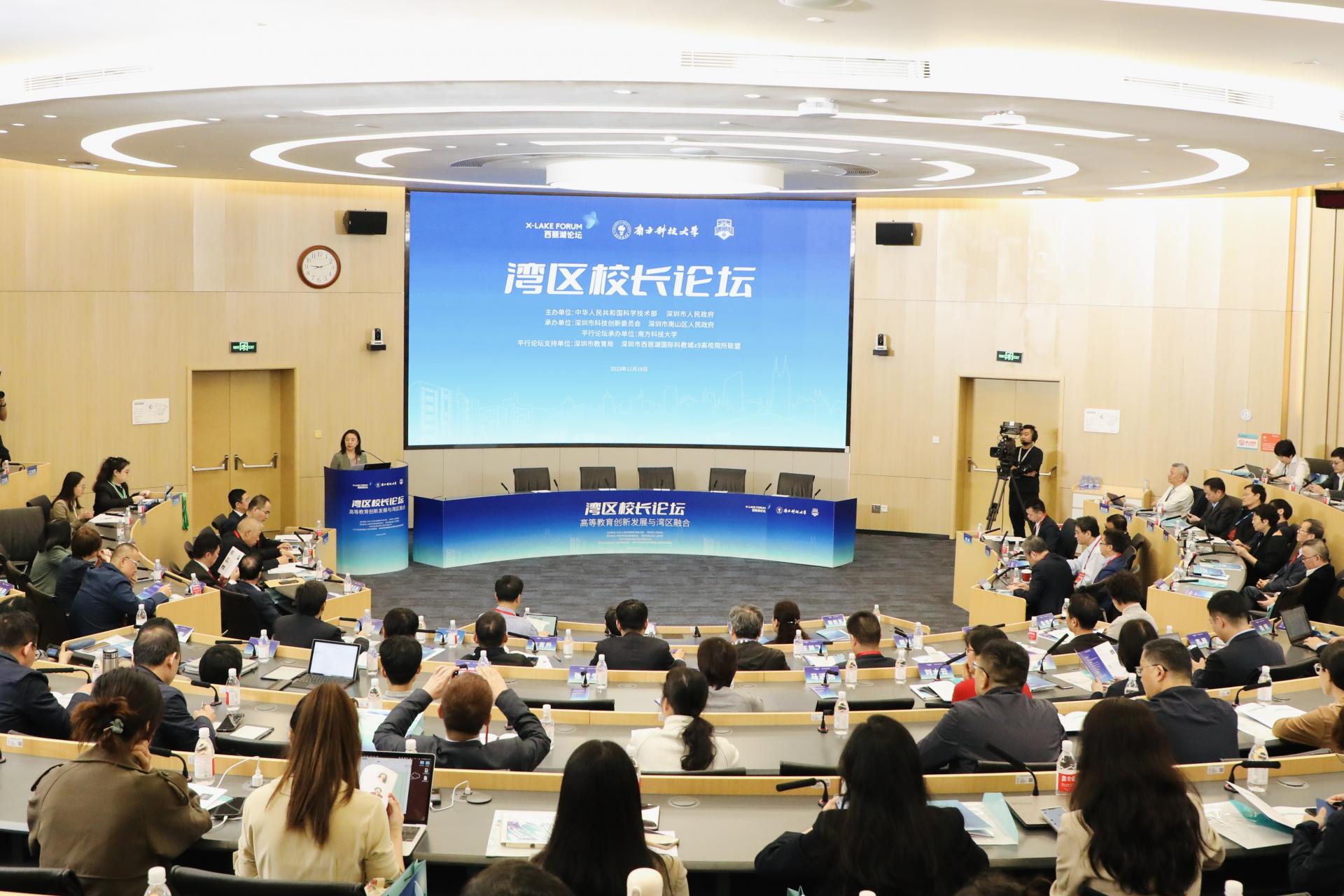
In the opening remarks at the event, Xiuyu ZHENG noted that in recent years, the Shenzhen Municipal Party Committee and Government have given priority to and implemented the strategy of developing education, attaching great importance to the development of higher education, paying equal attention to the expansion and improvement of universities, and striving to gather high-quality higher education resources from around the world to build an international, open, and innovative higher education system known as the “Shenzhen speed” of higher education.
Among them, she referenced SUSTech and how the University epitomes the leap-forward development of higher education in Shenzhen.
Through this forum, she looked forward to conducting in-depth exchanges and discussions on the innovative, coordinated, and integrated development of higher education in the GBA to generate more intellectual sparks and forge a broader consensus toward strengthening education in the country.
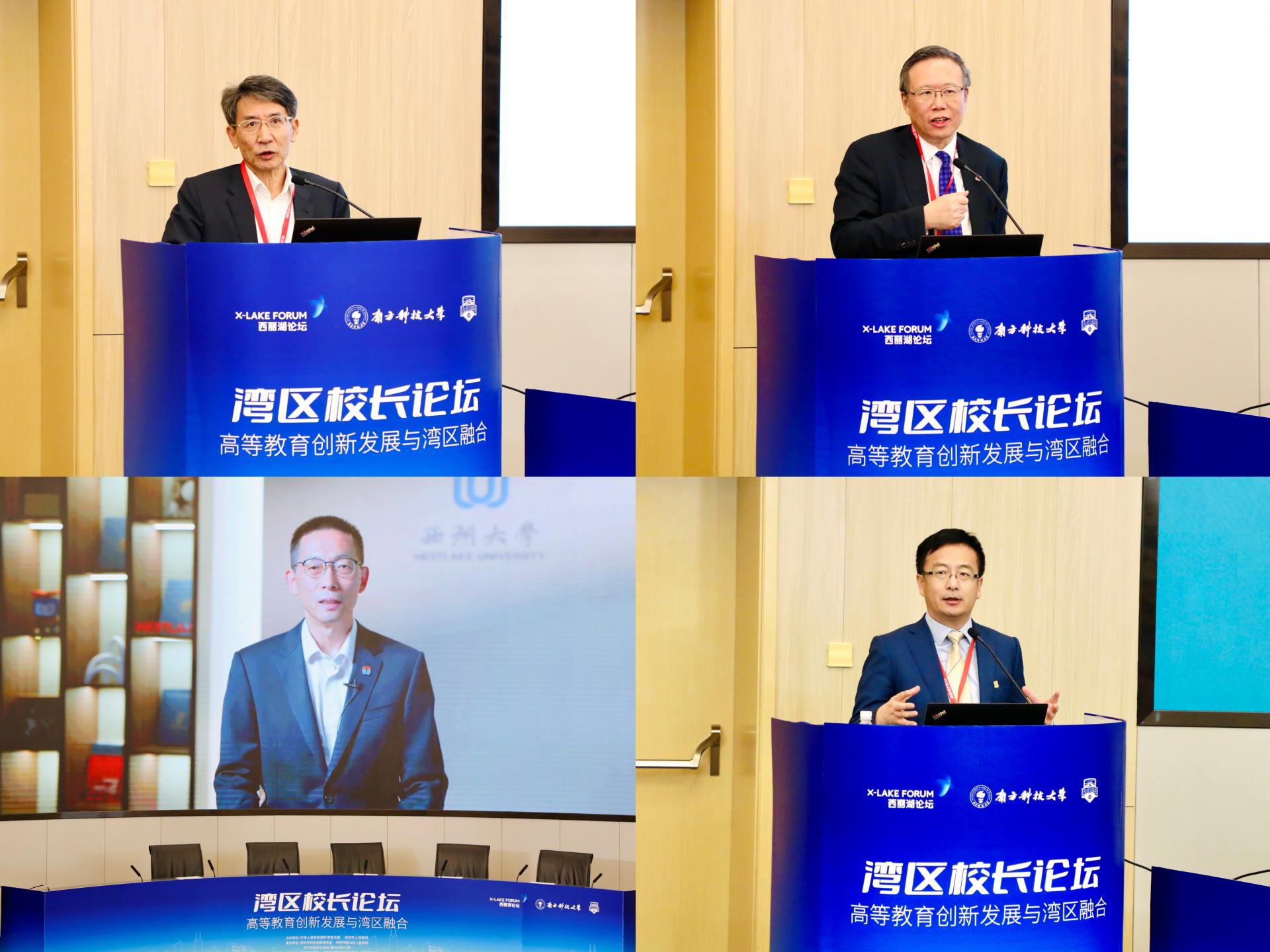
In the keynote speech session, Qikun XUE, Jin-Guang TENG, Zuo-Jun Max SHEN, along with Yigong SHI, President of Westlake University, via online, and others discussed the development of their respective universities.
In his report, Qikun XUE introduced the “3-3-5” development strategy of SUSTech, sharing the measures taken by the University from talent recruitment to cultivating talents, collaborative development of cross-border science and education, university-enterprise integration and innovative development, and emphasizing the need to build a broader environment for the rapid growth of talents and formulate a classification evaluation and assessment system.
He stressed that SUSTech would further continue to carry out the aims of the Special Economic Zone (SEZ), focusing on the development of “dual zones” while comprehensively improving the quality of talent training and contributing to the high-quality development of the GBA, in particular, the development of a talent highland in the region, and the promotion of a new type of research university.
Jin-Guang TENG discussed the current state of affairs of higher education in Hong Kong, the development of PolyU, and its unique disciplinary advantages.
He said that Hong Kong has the conditions to build an international education center and hopes that universities in Hong Kong and the GBA would strengthen cooperation to build a “special zone” for higher education in scientific research and talent training, such as the Northern Metropolis area, which has the policy advantages of both Hong Kong and the GBA, attracting more students from developing and Belt and Road countries to study in the region.
In his report, Yigong SHI discussed the development history of research universities, as well as the founding process and current development of Westlake University.
He noted that Westlake University was established to reform and hoped to explore three aspects of reform: to explore a new type of university governance mechanism based on modern Chinese universities, to explore a scientific evaluation standard that conforms to the country’s regulations and encourages innovation, and to explore a talent training model that is virtuous, top-notch, and innovative.
Zuo-Jun Max SHEN introduced the current state of affairs of HKU and its development plans in the Northern Metropolis area, and made comparisons with several major bay areas worldwide.
He said that in terms of science and education integration, the cities in the GBA should further integrate and develop, such as exploring the integration of science and technology and innovation, the integration of top talents, and the joint construction of laboratories.
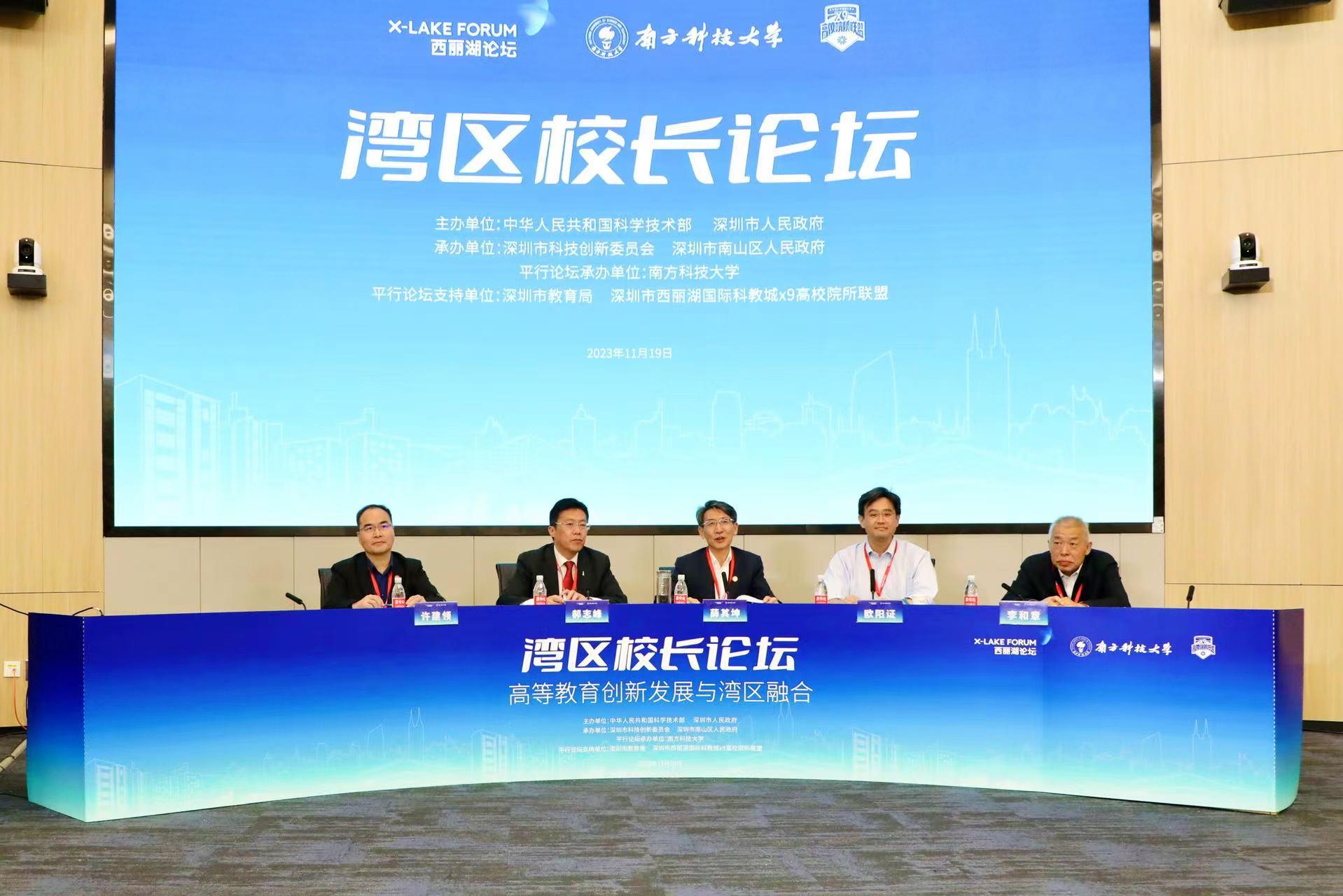
Qikun XUE presided over the subsequent panel discussion session, where Zheng OUYANG, Zhifeng HAO, Hezhang LI, and Jianling XU held in-depth talks on topics such as the strategic choices for the future development of higher education in the GBA, the role of higher education development in the GBA and its own characteristics, opportunities and challenges, the roles of different types of universities in the higher education system in the GBA, and the role of higher education in the cross-border linkage between government and industry.
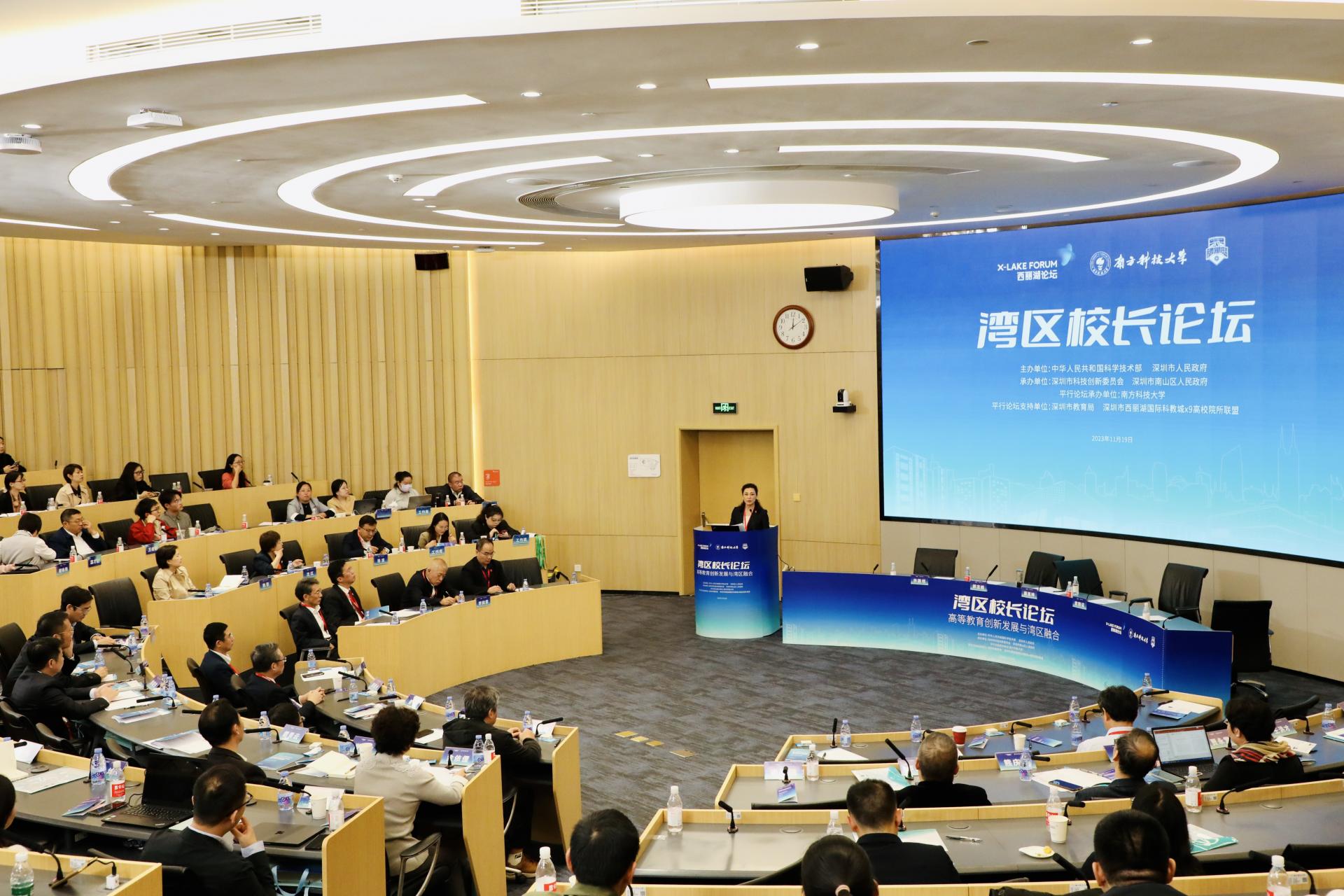
University Council Chairperson Hong JIANG made a concluding speech, noting that the leaders and guests in attendance shared great insights into developing a high-level talent highland in the GBA and constructing a global science and technology innovation center.
She shared two points of experience: each university in the GBA should use its strengths in different areas to make its contribution to higher education in the country; further discussions and exchanges are needed on common themes, such as the development of higher education in the GBA, the building of a highland for scientific and technological innovation, and the cultivation of new talents.
She emphasized that on the premise of a shared cultural foundation, that they would create a new model for mutual benefit and win-win cooperation between universities in the region, accelerate the development of an educational, talented, and innovative highland, and contribute to a new and greater strength of higher education in the GBA.
Proofread ByYingying XIA
Photo By